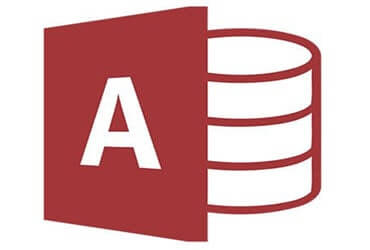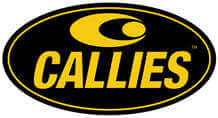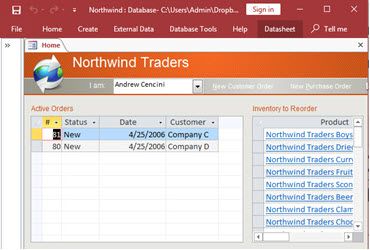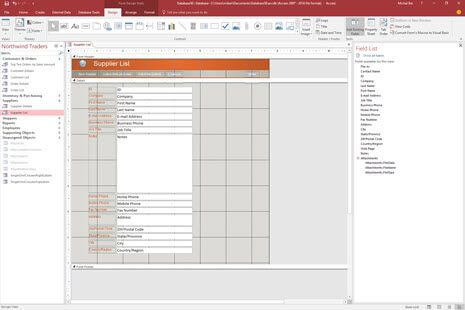
MS Access As A Dev Tool
Access continues to be a highly efficient tool for business database development.
If your Access database in Gilbert is slowing people down or crashing at the worst possible time, we can help. We repair broken databases, tune performance, fix forms and reports, clean up tables and relationships, and resolve ODBC/linked-table issues. We also handle custom Access development, ongoing maintenance, version upgrades, Excel-to-Access conversion, Access to SQL Server upsizing, and practical VBA automation. Call (323) 285-0939 for a free consultation and a clear, no-pressure game plan.

Microsoft Access is still the backbone of a lot of day-to-day work in Gilbert – quoting jobs, tracking inventory, running billing, and keeping client records straight. The challenge is that many of these databases were built years ago, then patched by different people, and now they feel fragile. One bad edit or a Windows update, and everything slows down or breaks.
That is where we come in. At MS Access Solutions, we design, fix, and modernize Microsoft Access databases for businesses in Gilbert and across the East Valley. Whether you are dealing with random error messages, slow reports, record locking, or you simply do not trust your current system, we help you stabilize what you have first, then make it faster and easier to use.
If you are not ready to throw everything away and rebuild from scratch, but you know something has to change, we can step in, evaluate your database, and give you a clear plan to repair, optimize, or migrate it with minimal disruption to your staff. Call (323) 285-0939 or request a rapid response to schedule a short discovery call.
The Best Microsoft Access Database Solutions owner, consultant, and principal programmer is Alison Balter – a recognized expert Microsoft Access consultant. Alison is the author of 15 Microsoft Access training books and videos. She is a frequent guest speaker at MS Access conferences and has developed hundreds of applications for businesses of all types.
We know your business data is important. We isten to your concerns, ask clarifying questions, and gather input from the people who use the system every day. Together we define what you need from your database, why certain features matter, and how staff actually works. From there we design the right table structure, queries, forms, dashboards, and reports so you get a stable system that supports real-world decision making.

At MS Access Solutions, our entire focus is Microsoft Access and related technologies. You are not handed off to short-term contractors or shuffled between departments. From the first discovery call through design, development, and long-term support, you work with senior programmers who learn your database, understand how your staff uses it, and stay with your project as it grows.
We build, repair, and improve Microsoft Access applications for businesses in Gilbert and throughout Arizona. Often that means keeping the familiar Access front end your staff already knows, while moving data into SQL Server for speed and reliability. For example, we helped a professional services firm retire a maze of spreadsheets and replace it with a single job-tracking system. Data entry became faster, deadlines were clearer, and progress reports stopped being a weekly fire drill.
When you need secure online access, we design ASP.NET applications that connect directly to SQL Server. Staff can review and update records from the office, home, or field without emailing spreadsheets around. Role-based logins and structured permissions keep sensitive information protected while still being available to the people who need it.
Clients choose us because we specialize in Microsoft Access solutions that are practical, maintainable, and built for everyday use. Our goal is to support your operations, improve reporting, and give you room to grow without forcing you into a one-size-fits-all platform or a complete system rewrite.








Access continues to be a highly efficient tool for business database development.

How to create a Microsoft Access application with some useful tips and best practices.

Your Access developer near you has practical advice on choosing and working with an Access consultant.
Call MS Access Solutions at (323) 285-0939 for your FREE consultation.
Answer: Yes. Microsoft Access connects to SQL Server, Oracle, MySQL, PostgreSQL, and cloud databases using ODBC. Access links to external tables without importing data, providing real-time interaction while maintaining data integrity. It supports on-premises and cloud platforms like Azure SQL, Amazon RDS, Google Cloud SQL, and Snowflake.
Microsoft Access has long served as a flexible desktop database management system within the Microsoft Office suite. One of its most powerful features is its ability to integrate with external databases through ODBC (Open Database Connectivity). This capability allows Access users to connect with a wide range of relational database systems usedin business and enterprise environments.
Access integrates directly with Microsoft SQL Server using ODBC. Administrators configure ODBC Data Source Names (DSN) that store server details, authentication settings, and database names. Once connected, Access can link directly to SQL Server tables, providing seamless front-end interaction while keeping core data management and business logic within SQL Server's secure environment.
Best practice recommends linking tables instead of importing data, allowing Access to serve as a local reporting or interface tool while SQL Server handles transactional integrity and scalability. Linked tables enable real-time interaction with SQL Server databases while ensuring centralized data governance.
Access can also integrate with Oracle Database systems through Oracle ODBC drivers. After configuring a proper DSN with Oracle's connection string, Access links to Oracle tables similarly to SQL Server. Developers should account for differences in data types and structures between Access and Oracle. In particular, Oracle's NUMBER, DATE, and VARCHAR2 fields may require careful data type mapping to ensure compatibility with Access queries.
ODBC allows Access to interface with multiple additional data sources beyond SQL Server and Oracle:
With cloud computing adoption growing, Access can also link to cloud-hosted databases using ODBC drivers:
These integrations allow organizations to leverage Access's familiar front-end capabilities while tapping into globally distributed, highly available cloud infrastructure.
Managing ODBC connections carefully is critical for maintaining system performance and security. Using System DSNs ensures consistent configurations across multiple users. Where possible, use Windows Integrated Authentication to simplify credential management and improve security through Active Directory control.
For optimal performance, avoid binding Access forms directly to large linked tables. Instead, use parameterized queries or pass-through queries to filter data at the server level, reducing network traffic and improving speed. This approach allows Access to handle smaller recordsets locally while preserving server resources for complex processing.
Microsoft Access remains highly effective for businesses that need rapid application development, user-friendly reporting, and integration with enterprise data platforms. Its support for ODBC makes it compatible with a broad range of relational databases — both on-premises and in the cloud, giving organizations the ability to blend local and remote data sources within a single application interface.
MS Access Solutions combines deep technical expertise with practical business understanding. We do more than fix technical errors; we make sure your Access applications support the way your organization actually operates. Every solution is designed to keep day-to-day work running smoothly while giving you the information you need to make confident decisions. Get more information about our programming services on the Microsoft Access programmer in Gilbert, Arizona web page.
Answer: To get moving quickly, we ask for a copy of your Access file (or a safe subset), the Access version you use (32- or 64-bit), a recent backup, screenshots of any error messages, and simple “steps to reproduce.” A short list of users and their roles helps us map permissions. If you use a shared back-end or SQL Server, we also need connection details and a test login with read-only access.
Answer: Yes. We regularly support environments where different Office and Access versions have to live together. We audit references, replace deprecated libraries, and compile ACCDEs for the correct bitness. When versions must coexist, we ship separate front ends, align trusted locations, and set up simple install/update steps so your staff gets updates reliably without breaking add-ins or VBA declarations.
Answer: We start by profiling the slowest forms and queries, then add the right indexes, remove wildcard- first filters, and avoid “SELECT *” where it hurts performance. Heavy joins move into saved queries or SQL Server views, and we defer subforms and images so screens open faster. Pass-through and parameterized queries reduce network chatter so multi-user screens feel snappier and more stable.
Answer: Yes. We connect Access to SQL Server and other data sources through ODBC and publish clean views that Power BI can read without confusion. For file-based exchanges, we automate CSV or SFTP workflows so your staff does not have to babysit exports. For SaaS tools, we call REST APIs from VBA with secure tokens. The goal is simple: one source of truth and hands-off refreshes that your staff can trust.
Answer: We design role-based forms and least-privilege logins, use encrypted SQL connections where appropriate, and add audit logs for key edits and deletes. Backups are tested with actual restore drills, not just timestamp checks. We also document recovery steps and set up front-end distribution so updates never put your back-end data at risk.
Answer: Yes. We start with a structured takeover: object inventory, dependency mapping, reference checks, and smoke tests for the workflows that matter most to you. Then we bring the application under source control, add a clear change log, and stabilize the most painful issues before adding new features. You end up with a system that behaves predictably, plus documentation your staff can actually use.
Get more information about our programming services on the Microsoft Access programmer Phoenix, Arizona web page.